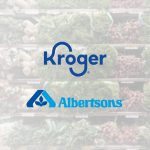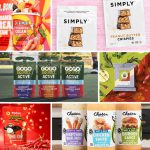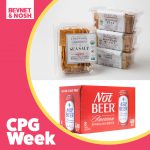The Continued Evolution of Online Grocery
While online grocery shopping still accounts for one of the smallest segments in food and beverage sales, industry experts are projecting big growths for this retail channel. In an October report titled “Online Food Shopping and Grocery Delivery in the U.S.: Future of Food Retailing,” market research publisher Packaged Facts forecasts online grocery shopping sales to grow from about $23 billion in 2014, equaling 3.5 percent of the overall retail grocery market, to $100 billion by 2019, when Internet-based sales are projected to capture 12 percent of total grocery spending.
The study by Packaged Facts indicates that consumers are becoming increasingly comfortable with online grocery shopping and home delivery of goods ordered online.
While the online grocery business has its challenges –- including logistical issues for distributors, and the matter of convincing shoppers that shopping online is as good, if not better, than shopping in person — dozens of online grocery companies, some established and some just getting started, are stepping in and addressing demand. Many of these online grocers aim to deliver perishables and deliver them on the same day.

Here are a few notable players:
A subsidiary of the online retailing giant, Amazon Fresh operates in Northern and Southern California, Seattle and New York City. The business offers same-day and early morning delivery of fresh and dry grocery items from Amazon-owned warehouses. Recently, the online grocer began running test trials with the U.S. Postal Service in San Francisco for some deliveries.
FreshDirect, a New York-based online grocery retailer, offers next-day delivery to the New York City metropolitan area as well as parts of New Jersey, Connecticut, and Pennsylvania, and Delaware. It operates from its own warehouse in Long Island, and has recently paired with Foodily, an online recipe search engine to create Popcart, which enables shoppers who search for a particular recipe online to also purchase those ingredients through FreshDirect.
Whole Foods is also getting in on the action. The natural grocer has paired up with delivery start-up, Instacart Inc. for grocery shipments. Instacart is unique in that it employs personal shoppers to pick up groceries at brick-and-mortar stores and deliver them directly to consumers the same day.
Google launched its online retail service, Google Express, in 2013 and recently expanded from markets in San Francisco, Los Angeles, and Manhattan to three other major metropolitan areas: Boston, Chicago, and Washington D.C. Unlike the Amazon and Whole Foods operations, Google currently offers only non-perishables goods and does not own its own warehousing facilities. Instead, Google Express works with established retailers to ship groceries from their respective warehouses. The business model allows Google to avoid the cost and burden of having to source and store its own groceries.
We recently spoke with Anaik Weid, who handles public relations for Google’s commerce product division. Weid discussed her thoughts on what kind of impact the online grocery market will have on consumers and food and beverage companies.
“People really enjoy getting the items they like from brands and retailers they know and have that be on their doorsteps in just a couple hours,” she told FBU.
Online grocery is also a good way for food and beverage companies to to gain feedback and “increase their reach both to existing customers and acquiring new customers,” Weid said. She noted that the most popular grocery items currently sold by Google Express are bulky items like toilet paper, which people would rather not carry home.
In a report released on Sunday, Google Express shared its most popular items, by region, purchased during the past 90 days.
- San Francisco: (Ever the healthy bunch) Bananas, avocado, coconut water, quinoa, and disinfecting wipes
- West L.A.: (Ready to party) Disposable silverware, plastic cups, paper plates, tortilla chips, and garbage bags.
- Manhattan: (Likes their staples and snacks) Cereal, almond milk, butter croissants, mini pretzels, and almonds.
- Boston: (Possible snackaholics) Maple bacon chips, green pea crisps, and peanuts. Boston buys more ketchup and popcorn than any other city.
- Chicago: (Town of babies and immune system fanatics) Baby wipes, chocolate, sparkling juice, vitamin C, and orange juice.
- Washington, D.C.: (Healthy snackers) Whole wheat crackers, fruit snacks, and diet soda.












